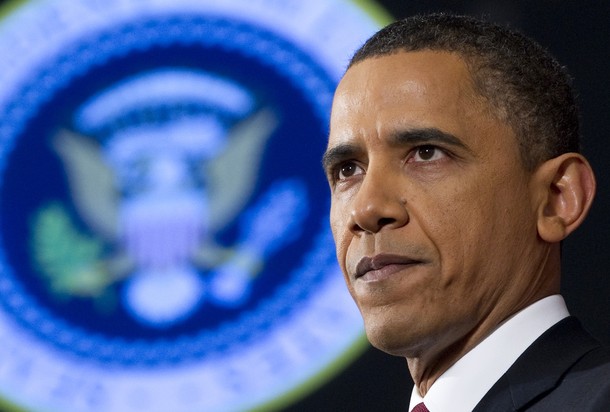
From Bruce Ackerman and Oona Hathaway, the Washington Post: This week, the War Powers Act confronts its moment of truth. Friday will mark the 60th day since President Obama told Congress of his Libyan campaign. According to the act, that declaration started a 60-day clock: If Obama fails to obtain congressional support for his decision within this time limit, he has only one option — end American involvement within the following 30 days. . . .
Why, then, hasn’t the president been pressing Congress to approve the war before the looming deadline? Because it’s easier to paper over the problem with new legal fictions pretending that the time limit doesn’t apply to this instance. By Friday, the administration’s legal team is likely to announce that the clock stopped ticking on April 1 — the date when NATO “took the lead” in the bombing campaign. Since NATO is running the show, the argument will go, the War Powers Act no longer applies, and the president doesn’t have to go back to Congress after all.
But American planes and drones continued their bombing long after the April turnover — and the drones are still flying over Libya. Since the cost of the mission is at three-quarters of a billion dollars and climbing, it is sheer fiction to suggest that we are no longer a vital player in NATO’s “Operation Unified Protector. . . ."
This is no accident. NATO has been a key vehicle for American military interests since the 1950s. It would create a terrible precedent to pretend otherwise. Once Obama crosses the Rubicon, future presidents will simply cite Libya when they unilaterally commit America to far more ambitious NATO campaigns.
Make no mistake: Obama is breaking new ground, moving decisively beyond his predecessors. George W. Bush gained congressional approval for his wars in Afghanistan and Iraq. Bill Clinton acted unilaterally when he committed American forces to NATO’s bombing campaign in Kosovo, but he persuaded Congress to approve special funding for his initiative within 60 days. And the entire operation ended on its 78th day. . . .
If nothing happens, history will say that the War Powers Act was condemned to a quiet death by a president who had solemnly pledged, on the campaign trail, to put an end to indiscriminate warmaking.
Bruce Ackerman and Oona Hathaway are professors of law and political science at Yale. (photo: Getty)
Image: getty%204%2018%2011%20Barack%20Obama.jpg
